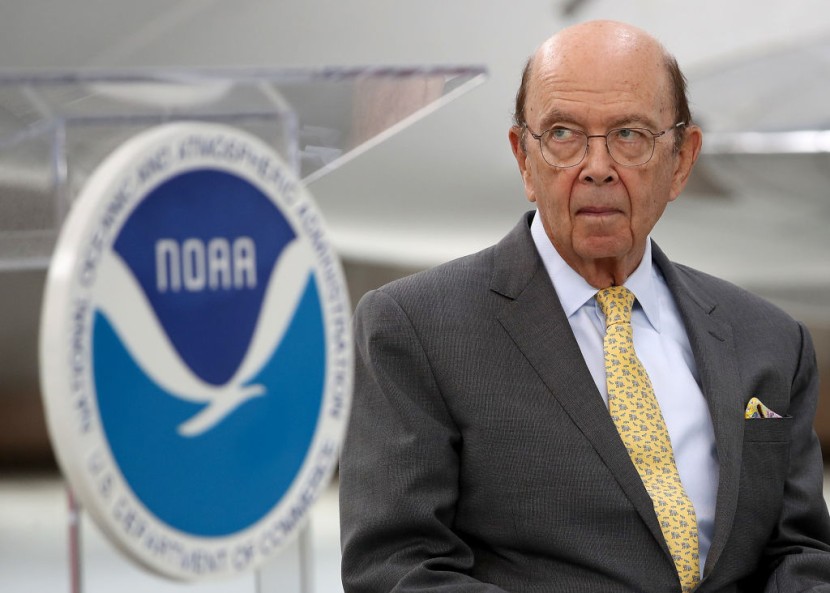
In retaliation for US sanctions against Chinese officials in Hong Kong, China slapped sanctions on former Commerce Secretary Wilbur Ross and six other persons and companies on Friday.
The "reciprocal" restrictions come after the State Department published business advice last week warning US firms about "growing dangers" in doing business in Hong Kong. The Chinese foreign ministry accused the United States of seeking to "unreasonably defame" Hong Kong firms.
China slaps the US with sanctions
The sanctions were imposed under China's new Anti-Foreign Sanctions Law, which was passed last month, and targetted Ross, as well as Carolyn Bartholomew, chair of the US-China Economic Security Review Commission, Jonathan Stivers, former staff director of the Congressional-Executive Commission on China, and Sophie Richardson, director of Human Rights Watch's China.
The US levied Hong Kong-related sanctions on seven people last week and cautioned firms about the dangers of doing business in the territory. The US has invented the so-called Hong Kong Business Advisory to groundlessly defame Hong Kong's business environment and improperly imposed sanctions on numerous personnel of the Liaison Office of the Central People's Government in the Hong Kong SAR, according to a Chinese Foreign Ministry spokesperson.
According to Big News Network, seven Hong Kong-based Chinese officials have been added to the US Treasury Department's Office of Foreign Assets Control (OFAC)'s list of Specially Designated Nationals, according to a notice from OFAC.
Individuals from the Hong Kong liaison office are said to be the target of the sanctions. The LOCPG is China's principal platform for projecting its influence in Hong Kong; and it has consistently eroded Hong Kong's high level of autonomy, which was promised in the Sino-British Joint Declaration.
Per BBC, Ross extended the list of companies that may not deal with American companies without prior permission while serving as Commerce Secretary under former President Donald Trump, including Chinese telecom giants Huawei and ZTE. The US, according to White House press secretary Jen Psaki, is "undeterred" by China's retaliation.
Under Trump's presidency, the relationship between Beijing and Washington grew even more tense. They are still bitter about Covid-19's origins, human rights, and cybersecurity. US Deputy Secretary of State Wendy Sherman will visit China this weekend to try to repair strained ties.
It will be President Joe Biden's most senior official visit. Ross is the most recent former Trump administration official to be sanctioned by China. China imposed sanctions on departing Secretary of State Mike Pompeo and 27 other key Trump officials in January.
Read Also: Watch: Deadly Floods in China, Germany Upended Lives; Stark Reminders of Climate Vulnerability
The US is "undeterred" with China's retaliation
China's punitive steps against six individuals and an entity in the United States on Friday are the latest in a series of "baseless" sanctions that highlight how Beijing punishes non-official actors and demonstrates its isolation from the rest of the world, according to Washington.
Beijing's new retaliatory salvo, which comes in response to US sanctions on officials from the People's Republic of China (PRC) over Hong Kong, is expected to exacerbate tensions between the two countries ahead of Sherman's impending visit to Tianjin, SCMP reported.
Psaki also stated that she was "unaware" of any changes to Sherman's scheduled visit to China, which would most likely include conversations about areas where the two economic titans agree and disagree. The reaction was justified, according to a Chinese foreign ministry statement, after Washington slapped penalties on Chinese officials last week and issued advice warning American firms about dangers to their operations and activities in Hong Kong.
Related Article: US Implies Sanctions on 34 Companies Linked to Uyghur Policy; China Vows Retaliation Over Blacklisting
@YouTube








